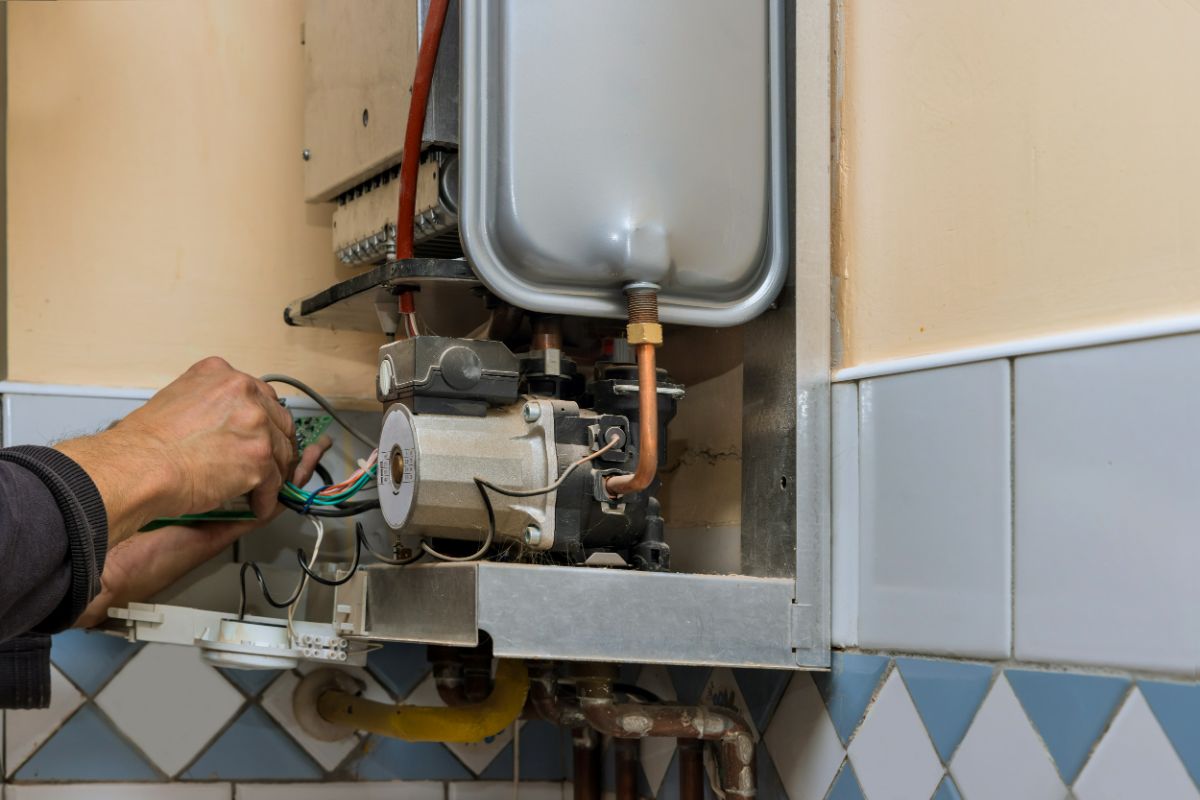Just about every person seems to have their unique theory in relation to Water Heater Maintenance Tips You Can't Afford to Forget.

Hot water is necessary for daily convenience, whether it's for a rejuvenating shower or cleaning recipes. To guarantee your hot water system runs efficiently and lasts longer, normal upkeep is vital. This short article offers useful pointers and insights on how to keep your home's hot water system to stay clear of interruptions and costly repair services.
Introduction
Preserving your home's hot water system might seem difficult, yet with a few simple steps, you can guarantee it operates efficiently for several years ahead. This overview covers whatever from comprehending your warm water system to do it yourself upkeep ideas and recognizing when to call professional aid.
Importance of Maintaining Your Warm Water System
Normal maintenance not only extends the lifespan of your warm water system yet additionally guarantees it runs successfully. Disregarding maintenance can lead to decreased efficiency, greater power expenses, and also early failing of the system.
Indications Your Hot Water System Needs Upkeep
Recognizing when your warm water system requires interest can avoid major concerns. Keep an eye out for indications such as inconsistent water temperature, strange sounds from the heating system, or rustic water.
Flushing the Hot Water Heater
Flushing your water heater eliminates sediment build-up, enhancing efficiency and prolonging its life.
Checking and Replacing Anode Rods
Anode poles prevent deterioration inside the storage tank. Examining and replacing them when worn is vital.
Complicated Issues Requiring Specialist Assistance
Examples consist of major leakages, electrical problems, or if your water heater is consistently underperforming.
Routine Specialist Upkeep Perks
Professional upkeep can include thorough examinations, tune-ups, and making sure compliance with safety and security requirements.
Examining and Readjusting Temperature Level Settings
Readjusting the temperature setups makes certain optimal performance and safety.
Do It Yourself Tips for Maintenance
You can do several maintenance tasks on your own to maintain your hot water system in top problem.
Checking for Leakages
Routinely inspect pipelines and links for leaks, as these can cause water damages and greater costs.
Recognizing Your Warm Water System
Before diving right into maintenance tasks, it's helpful to recognize the basic elements of your hot water system. Typically, this includes the water heater itself, pipelines, anode poles, and temperature controls.
Regular Monthly Upkeep Tasks
Regular regular monthly checks can assist catch minor issues prior to they escalate.
Evaluating Stress Alleviation Valves
Testing the stress safety valve ensures it functions properly and protects against excessive pressure accumulation.
Shielding Pipes
Insulating hot water pipes minimizes warmth loss and can save energy.
When to Call a Professional
While DIY maintenance is beneficial, some issues require expert know-how.
Verdict
Routine maintenance of your home's hot water system is necessary for efficiency, durability, and expense savings. By complying with these suggestions and understanding when to seek specialist help, you can make sure a dependable supply of hot water without unexpected interruptions.
Water Heater Maintenance Tips
Test the TPR Valve
Shut off the power and the cold-water supply valve. Place a bucket under the pipe connected to the temperature-pressure-release (TPR) valve on the top or side of the tank. (This valve opens if the tank pressure gets too high.) Lift the valve’s tab to let some water out, then let go. If water keeps flowing, drain the tank partway, unscrew the old valve with a pipe wrench, and install a new one. Check the Anode Rod
Put a hose to the tank’s drain cock and let out a few gallons of water. Now fit a 1 1/16-inch socket onto the rod’s hex head on top of the heater (or under its top plate) and unscrew the rod. If it’s less than ½ inch thick or coated with calcium, buy a new one, wrap its threads with Teflon tape, put it back in the tank, and tighten securely. Use this segmented rod if headroom above the tank is limited. Drain the Tank and Wash Out Sediment
Drain the remaining water in the tank into the bucket, then stir up the sediment on the tank’s bottom by briefly opening the cold-water supply valve. Drain and repeat until clean water comes out of the hose. Close the drain cock, refill the tank, and turn its power back on. Adjust the Temperature
Find the temperature dial on the side of the tank and unscrew its cover. Adjust the dial to 120 degrees using a flathead screwdriver. For every 10 degrees the temperature is lowered, you can expect to save up to 5 percent in energy costs. Turn the water heater off or the thermostat down to its lowest setting if you plan to be away from home for more than three days. Insulate the Pipes
Buy some self-sticking 3/8-inch-thick foam pipe insulation that matches the pipes’ diameter. Slide the foam over the hot-and cold-water pipes as far as you can reach. Insulating the cold-water pipe prevents condensation in summer. Peel the tape and squeeze the insulation closed. If the pipe is 6 inches or less from the flue, cover it with 1-inch-thick unfaced fiberglass pipe wrap. https://www.thisoldhouse.com/plumbing/21016402/how-to-maintain-a-water-heater

We were brought to that editorial about Water Heater Maintenance Tips You Can't Afford to Forget through a buddy on another web property. So long as you enjoyed reading our blog entry please remember to share it. Many thanks for taking the time to read it.
Click Here!